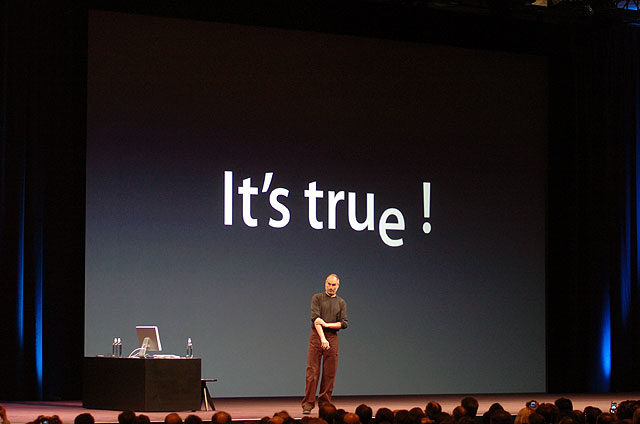Home » Learning Curve
FirestormLatent benefits.
The Motley Fool on 12 June:
How Much Apple Could Save by Using Its Own Chips in Macs
Yes indeedy. But is that what's really pivotal here?
'The company also stands to save billions of dollars per year', says the Fool. 'Transitioning to in-house chips could yield estimated cost savings of $2 billion per year, according to Bernstein Research.'
Poor Timmie. Now finally:
'Apple is reportedly planning to start shipping ARM-based Macs in 2021, which would give developers ample time to tweak their code.'
The above should mean nothing for most application developers.
But that's it from the Fool. Thanks, Fool.

Heya Mike
Bloomberg on 23 April this year.
Apple Aims to Sell Macs With Its Own Chips Starting in 2021
They add:
'Transition will be gradual, start with less-powerful computers.'
Bloomberg doesn't rely anymore on unnamed (but credible) sources. Starting now, they're called The People.
'Taiwan Semiconductor Manufacturing Co., Apple's partner for iPhone and iPad processors, will build the new Mac chips, said the people, who asked not to be identified discussing private product plans.'
Firestorm & Icestorm
'The first Mac processors will have eight high-performance cores, codenamed Firestorm, and at least four energy-efficient cores, known internally as Icestorm', according to The People.
'Apple is exploring Mac processors with more than 12 cores for further in the future, the people said.'
That's all fine and good, and certainly there are many who are interested in Lady Tim's financial welfare, but that's not a reason to publish something here in the Learning Curve. But this is.
Shellcode
Let's begin at EP. There's some precious language here.
https://is.gd/RupsAc
'In hacking, a shellcode is a small piece of code used as the payload in the exploitation of a software vulnerability.'
Small piece of code. Alright.
'It is called 'shellcode' because it typically starts a command shell from which the attacker can control the compromised machine, but any piece of code that performs a similar task can be called shellcode.'
Aha. And it's not until the last line of the lede that one gets to the heart of the matter.
'Shellcode is commonly written in machine code.'
That's put in bold so everyone notices.
If you don't know what machine code is, you're lost. Inquire at the nearest Apple Store - they're bound to be of help.
But this is the key issue. In terms of security.
OS X on PPC
The PowerPC (PPC) architecture is infinitely (limitlessly) superior to Intel lawnmower architecture. The PPC has a gazillion onboard registers. Intel's onboards can be counted on your fingers, no need to take off your socks and shoes.
Tranferring things to RAM is costly. It takes cycles. It slows things down. Intel, back in the day when PPC emerged, used twelve cycles for a memory transfer.
When we got to visit with IBM and see the first full schematic of the PPC, we trembled in our shoes. All machine operations - including memory transfers - took one (1, uno) clock cycle.
There wasn't much to look at in that wall-size schematic, but the ramifications and the permutations of that essential nugget gave us long moments of pause. Just pondering what it meant. How it could change the industry. Change computer science.
After a long while, our IBM colleague walked up to us, stood beside, as if also worshipping the schematic, then finally said:
'Nope, it doesn't get faster than that!'
And it doesn't. The initial clock rate wasn't very high, but the architecture was chiseled in silicon. All you had to do was up the clock rate. The architecture itself was perfect.
That clock rate became a big issue years later in a propaganda war that Wintel started against Apple. Wintel (Intel) CPUs ran faster than Apple's PPCs. So what? A lawnmower may scream, compared to a Ferrari V-12, but you know which is faster and more powerful regardless.
But there's also another advantage - a crucial advantage. The PPC runs its own instruction set. So if a hacker - or hacker's apprentice - can get bad code onto your computer and dupe the user into running it, then, if that code contains a shellcode (machine code) excerpt, you're goners if and only if your CPU understands.
And shellcode is almost always written for the Intel architectures.
And that was the great advantage of the first Apple/NeXT boxen that came out. Yes, you had Unix and not pathetic Windows under the bonnet, but it didn't matter anyway, because the bad guys can't touch you if they don't speak the same language.
To those who really understand what's going on, this is an immense perk. You are safe.
Unfortunately True™
Apple needed faster CPUs for their laptop line, IBM needed $250 million to fund further research in their latest 'Cell' architecture, and there was no way a dongled Apple was going to be able to promise IBM sales in that quantity. So Steve Jobs started leaking about a move to Intel and the fanboys ate it up.

Apple boxen were still infinitely more secure than Windows, but they were no longer more secure than Linux and OpenBSD on Intel. On-disk architecture started getting crazy, this whole cockamamie idea of quarantines (safe spaces?) came about, upending the vital balance between security and usability, to where we are today, where using OS X is almost literally (almost, Tim) a pain in the arse.
Conversely, with a Watership Down away from Intel, Apple users need fret no longer. And they won't need all that Gatekeeper nonsense either.
One can only hope (← that's a pivotal word) that something will knock some sense into the Cupertino droids and they'll stop wasting time building castles in the sand.
Apple and the ACP
Everyone's been in lockdown, so things have slowed a lot, but we're still working here when not busy sharing information to save lives.
Our two commercial (ie they cost money) products are the ACP and the Xfile thing.
We also have a freebie version of the core titles, and that's been updated recently to include bits of our 'Seahaven Technology' aka Keymaster.
Keymaster Solo is now included in the free download.
Keymaster
Keymaster is the essential - some would say vital - component of the Mac/Unix experience that Apple forgot. And they wouldn't dare do otherwise either, as it could cut into billions of dollars of vapid (and undeserved) profits per annum.
Keymaster is essential to having a hassle-free Mac experience.

We recommend staying on 'Mojave' until someone knocks some sense into Tim and starts making the platform usable again.
All the best. Stay safe and virus-free. (Wear a face mask FFS!)
See Also
Motley Fool: How Much Apple Could Save by Using Its Own Chips
Industry Watch: RIXSTEP'S KEYMASTER DEFEATS APPLE'S GATEKEEPER
Bloomberg: Apple Aims to Sell Macs With Its Own Chips Starting in 2021
About RixstepStockholm/London-based Rixstep are a constellation of programmers and support staff from Radsoft Laboratories who tired of Windows vulnerabilities, Linux driver issues, and cursing x86 hardware all day long. Rixstep have many years of experience behind their efforts, with teaching and consulting credentials from the likes of British Aerospace, General Electric, Lockheed Martin, Lloyds TSB, SAAB Defence Systems, British Broadcasting Corporation, Barclays Bank, IBM, Microsoft, and Sony/Ericsson.
Rixstep and Radsoft products are or have been in use by Sweden's Royal Mail, Sony/Ericsson, the US Department of Defense, the offices of the US Supreme Court, the Government of Western Australia, the German Federal Police, Verizon Wireless, Los Alamos National Laboratory, Microsoft Corporation, the New York Times, Apple Inc, Oxford University, and hundreds of research institutes around the globe. See here.
All Content and Software Copyright © Rixstep. All Rights Reserved.
|